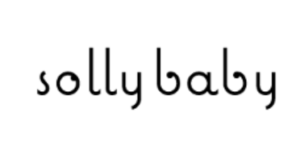Female empowerment in the workplace has changed and evolved drastically over the years – from back in the day when women weren’t able to work at all to the plethora of successful companies that have been started and are run by women today.
The role of women in the workplace and the fact that females have any place at all in the professional world represents a massive jump from the way things used to be, but it certainly doesn’t mean that things are exactly as they should be.
Women’s rights have come a long way since the Suffragette Movement of the early 20th century, but there are still plenty of obstacles standing in the way of women being able to pursue professional success in the same way men can.
And that’s one of many factors that makes women’s success in business such a triumphant feat. It’s not easy for anybody to become an entrepreneur and start a business – never mind keep it going and help it thrive – but there’s no doubt about the fact that women in particular have the odds stacked against them.
One such factor that contributes to the difficulties involved in women starting businesses is their responsibilities as mothers, including both societal expectations of motherhood as well as the very real difficulties involved in being a full-time mom while trying to balance a healthy professional work life.
Mumpreneurs: SuccessfulWomen in Business
The complexities surrounding parents having equal parenting responsibilities are manifold, taking into account things like physical issues such as breastfeeding as well as gender norms regarding women being expected to stay home while men work and provide for the family. Of course, in addition to plenty of other issues with these old-fashioned ideals go assumptions of heteronormativity, but that’s a story for another day.
There’s no doubt about the fact that being a mom, whether you choose to stay at home with the kids or commit to a nine-to-five, is hard work. Yet, there are some incredible female entrepreneurs who have used their roles as mothers to inspire creativity and innovation, leading to exciting business ideas.
Here are some of the top businesses and brands that were started by so-called “stay-at-home moms” and have absolutely killed it in their relevant industries.
More from Startups
- Startup of the Week: SurrealDB
- Top AI Startups in Brazil 2025
- InTouchNow.ai: AI Startup Profile
- SilentSale: The Marketplace Built to Protect People, Not Exploit Them
- Top AI Startups in Australia 2025
- Experts Share: How Startups Should Hire If Jobs Are Taken By Automation And AI?
- Are AI Features Increasing The Value Of Startups?
- Founder of the Week: Maya Moufarek
1. Spanx: Sarah Blakely

Sarah Blakely’s idea for Spanx came to her when she was getting ready for a party and all she wanted was something that could help her feel more confident in the clothing she loved in her new post-baby body.
As a mother of four, Blakely spotted a gap in the market and launched Spanx in the year 2000. Today, the company is a global success, and after the majority shares were purchased by Blackstone in 2021, the company achieved its $1.2 billion valuation.
2. The Bee and the Fox: Ashley Jennett

The Bee and the Fox is a classic example of a women-owned startup that came to life as a result of a mom with an idea. Ashley Jennett is a professional photographer, nurse and now a business owner who started designing, manufacturing and selling graphic T-shirts for children.
The company then shifted into making T-shirts for moms too, and after starting off doing everything on her own, she’s now managed to grow The Bee and the Fox into an incredibly successful business and brand, shifting some of the responsibilities to new employees.
3. The Break: Patricia Bright

Patricia Bright, initially having started out as a fashion and beauty blogger as well as a successful investment banker, launched the Break as a tool to help young women start businesses and achieve success in their careers and professional lives.
The Break Platform provides assistance in life planning, as well as giving women both motivation and real-life, practical assistance in making their professional dreams come true.
4. Eventbrite: Julia Hartz

Julia Hartz is the co-founder of Eventbrite, a successful event technology platform that helps people plan, promote and coordinate events. As a mother of three, Hartz has demonstrated the world of possibilities for “momtrepreneurs”, showing how it’s possible to have a multifaceted identity as a mother and a successful and powerful entrepreneur and businesswoman.
Eventbrite has become a global success, making the event planning industry more accessible than ever before.
5. Kendra Scott Jewelry

Kendra Scott of Kendra Scott Jewelry transformed what started out as a passion into a thriving business. From a modest, DIY setup in her spare room to a billion-dollar jewellery empire, this ambitious mother of three has shown the world just what moms can do.
Since the official launch of the company in 2002, Kendra Scott Jewlery now has a plethora of stress across the United States, and the brand has become well-known for its unique and distinctive designs.
6. Solly Baby: Elle Rowley

Solly Baby is a startup that was started by Elle Rowley back in 2010. When the new mum couldn’t find a product that suited her needs, she decided to take things into her own hands. Now, nearly 15 years later, that idea has grown into a fully-fledged, successful business, and Solly Baby has managed to attract external investment.
Rowley began her business venture by handmaking baby wraps in her living room with both a newborn and a busy toddler looking on. Solly Baby has since expanded manufacturing processes massively, and the company produces a variety of accessories and clothes for mothers and babies.
7. Amidira: Sylvia Ng

Sylvia NG launched Amidira as a personal business venture after having been diagnosed with breast cancer. Her diagnosis came shortly after giving birth to her son and while she was in the midst of breastfeeding him, creating a situation that was obviously incredibly difficult to cope with.
After having gone into remission, Sylvia decided to try her best to help other women facing the same challenges, and thus, the idea for Amidira was born. The company is a care-box brand that is specifically tailored to providing helpful self-care products and tips for cancer survivors to take recovery into their own hands.
8. The Detox Market: Bita Doagoo
![]()
Founded by Bita Doagoo in Los Angeles, the Detox Market is all about creating cleaning products from clean and transparent ingredients. Doagoo’s son was only 15 months old when she founded the company, and by focusing on both her roles as his mother and as a busy entrepreneur, Bita was able to establish her dual identity which allowed her to grow her company into what it is today.
The Detox Market is now online as an e-commerce store, offering extended services including beauty treatments and more.
9. Playfully: Manisha Shah and Sonia Chang

Playfully was founded by mom team Manisha Shah and Sonia Chang who launched the company as a means to help busy parents find new and effective ways to spend more meaningful time with their children.
To do this, they developed an app through which children and their parents can play games that simultaneously allow the children to stimulate their growth and development while spending quality time together.
All the games on the app are designed and developed by experts including psychologists, speech therapists, occupational therapists and more.
10. Saalt

Amber Fawson and Cherie Hoeger started Saalt in an effort to improve period care for women that is safer and more environmentally friendly. By designing and producing reusable menstrual cups, Saalt has contributed to the feminine hygiene industry in a meaningful way.
Since its launch, its products have become available in several mainstream retail stores around the United States. Additionally, the company donates 2% of its profits to funds that support period care, girls’ education and more.
Fawson and Hoeger have four and five children each respectively, and their idea to launch the company came not in spite of their identities as mothers, but because of them. The women were inspired by the sad reality of how many young girls around the world don’t have access to menstrual products.



